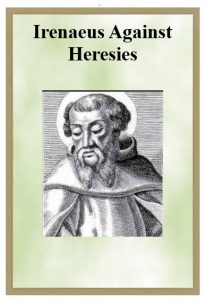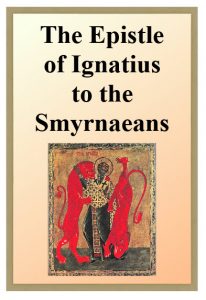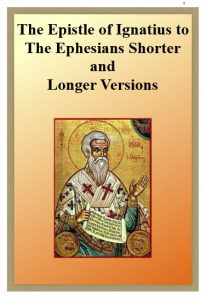From: Ante-Nicene Fathers, Vol. 1. Edited by Alexander Roberts
BOOK I
PREFACE.
1. INASMUCH(1) as certain men have set the truth aside, and bring in lying words and vain genealogies, which, as the apostle says,(2) “minister questions rather than godly edifying which is in faith,” and by means of their craftily-constructed plausibilities draw away the minds of the inexperienced and take them captive, [I have felt constrained, my dear friend, to compose the following treatise in order to expose and counteract their machinations.] These men falsify the oracles of God, and prove themselves evil interpreters of the good word of revelation. They also overthrow the faith of many, by drawing them away, under a pretence of [superior] knowledge, from Him who rounded and adorned the universe; as if, forsooth, they had something more excellent and sublime to reveal, than that God who created the heaven and the earth, and all things that are therein. By means of specious and plausible words, they cunningly allure the simple-minded to inquire into their system; but they nevertheless clumsily destroy them, while they initiate them into their blasphemous and impious opinions respecting the Demiurge;(3) and these simple ones are unable, even in such a matter, to distinguish falsehood from truth.









